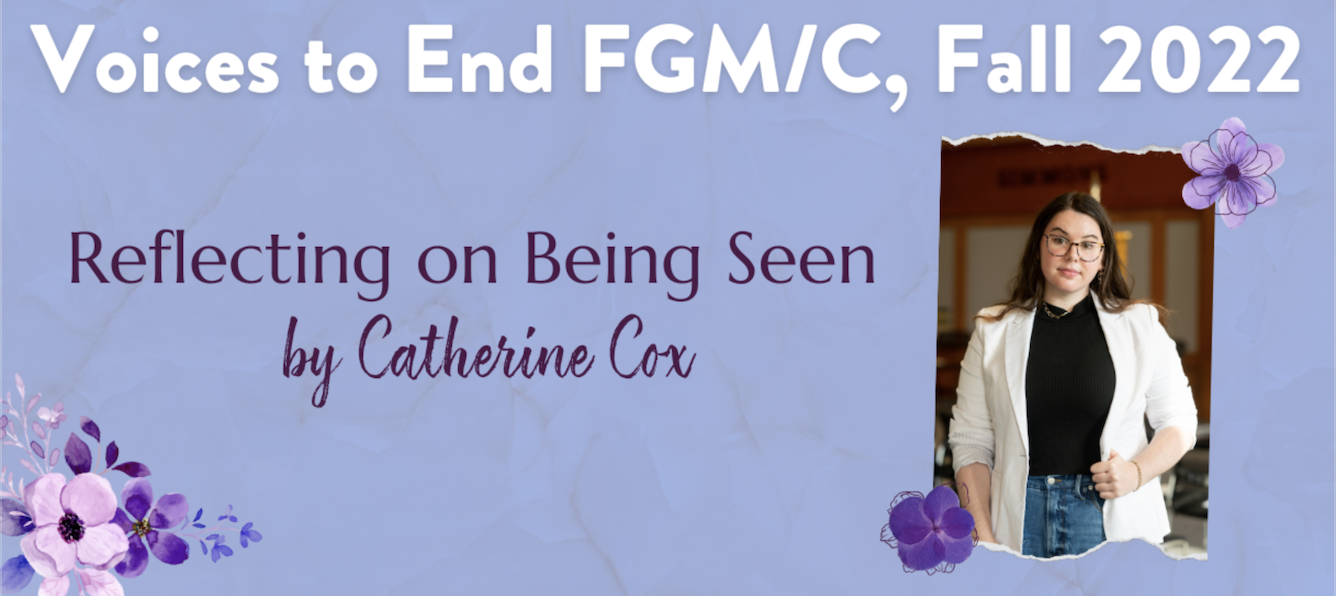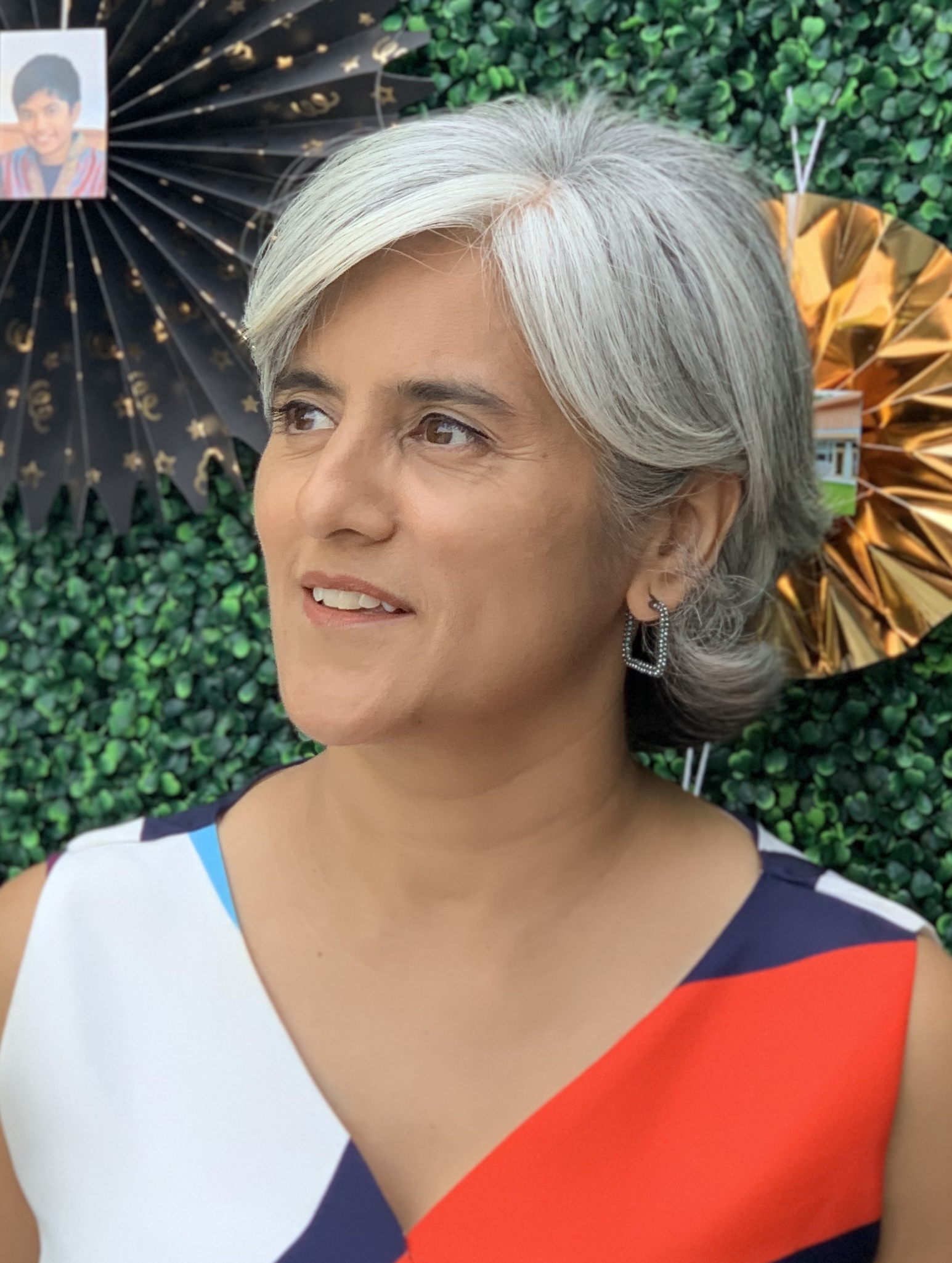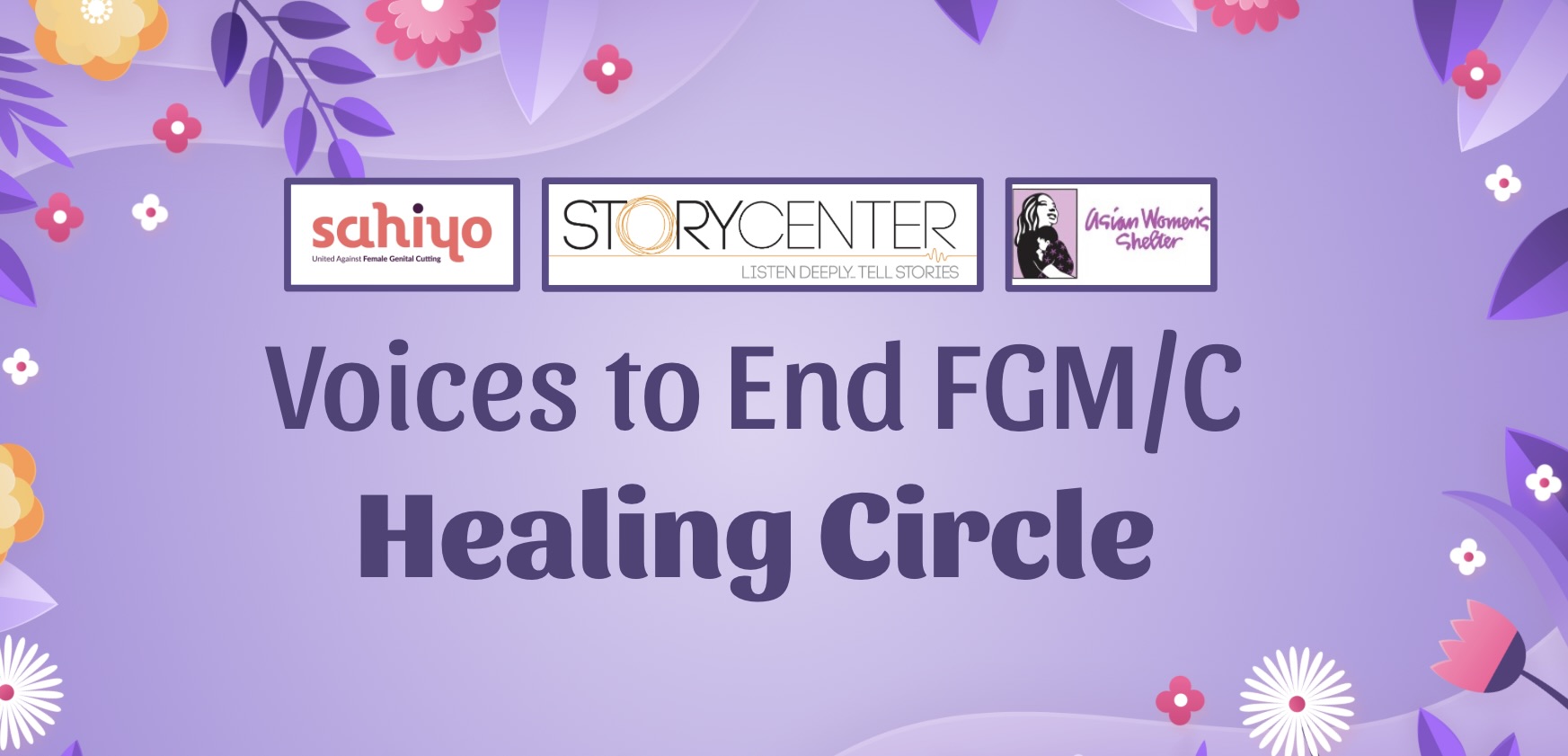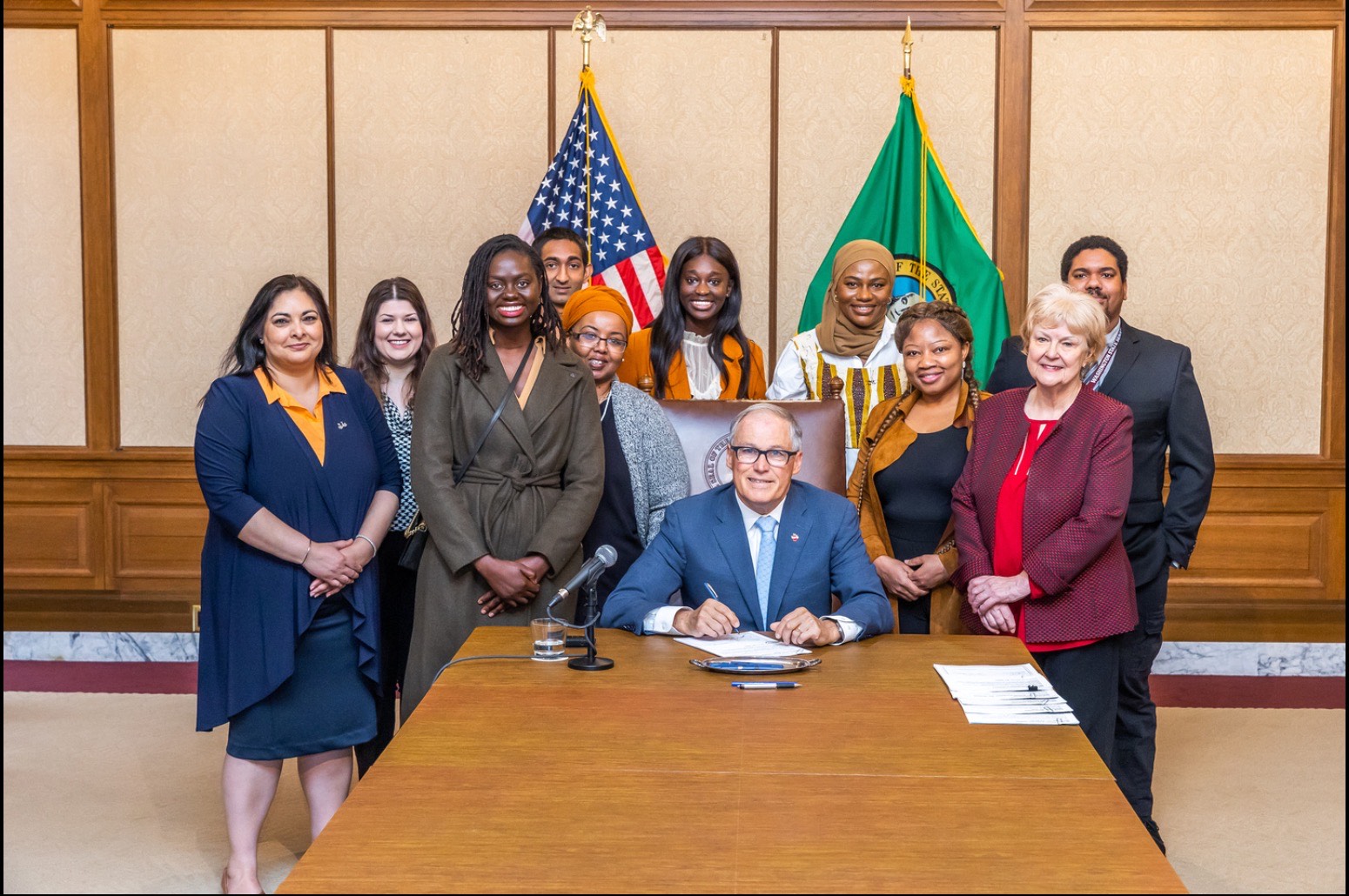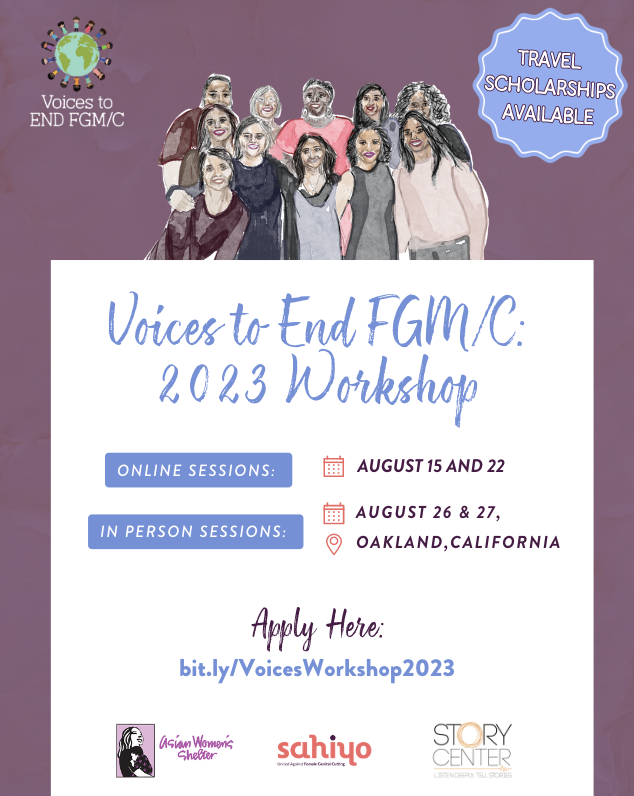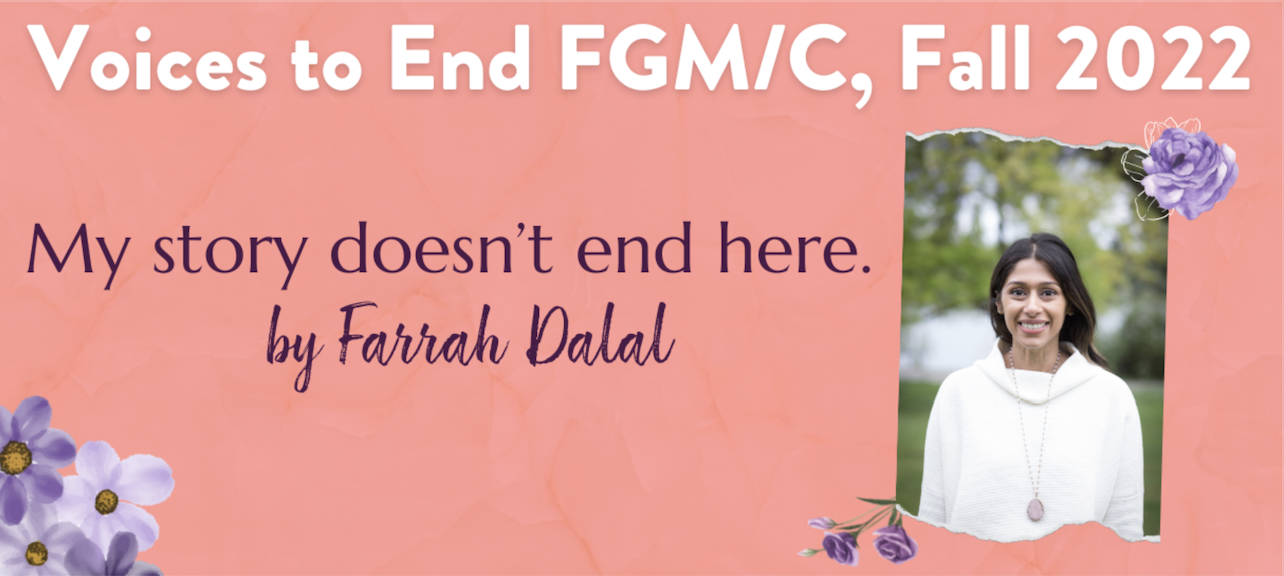By Cate Cox
Despite working at Sahiyo for nearly three years, it wasn’t until recently that I decided to participate in our popular ‘Voices to End FGM/C’ digital storytelling workshop.
For so long I’ve been inspired by the strength and bravery of the storytellers I watched on my computer screen. I’ve used various Voices videos during Sahiyo events, and even helped to organize a Voices workshop. Despite this, I struggled with the idea of participating in the workshop myself. I wondered what my role was in the workshop as someone who does not come from a practing community and who has not undergone FGM/C. I worried that by participating in this workshop, I would be speaking over survivors or taking a space from them.
Before joining the Spring 2023 cohort, I wanted to reflect on my many years at Sahiyo. I thought about how much this movement and work has taught me – not just about FGM/C but also about the world. I considered how listening to survivors of FGM/C at various events helped me to better understand patriarchal systems and how to resist them. How survivors' own radial embrace of their bodily autonomy and sexuality helped me to embrace my own. And finally, how their words helped me to feel seen about issues in my own life, like my vaginismus.
I decided I did have a story to tell. However, my story wasn’t only that of an ally, but of someone who has had the privilege of growing up inside the movement to end FGM/C – surrounded by strength and support. During my first month at Sahiyo I celebrated my 19th birthday; this August I will be turning 22. If there is one thing I have learned throughout these years, it is that everyone has something to learn from the movement to abandon FGM/C. That is the story I wanted to share through my Voices to End FGM/C project.
In that sense, I cannot help thinking about my video “Being Seen” as a kind of love letter to the people I have met on this journey. To the activists, doctors, authors, students, researchers, and others who have dedicated their lives to ending FGM/C. My video is thank you to them, because by being themselves, unapologetically, they have allowed me to see myself in more clarity.
Catherine Cox is a senior at Simmons University studying International Relations and Economics. Her research and work experiences center on the rights of women and girls, gender-based violence, as well as conflict and migration. She has had numerous international internships in places like Jordan and Cameroon addressing these topics. She currently works as the U.S. Programs Coordinator at Sahiyo: United Against Female Genital Cutting. Her research has previously been published in the Journal of Student Research, the Southern Connecticut State University Undergraduate Journal Society, Justice, and the Law and she has presented her work at various conferences including NEPSA and SCUSA. In 2022 she won the Simmons Alumni Academic Achievement award for her work and dedication to community service. She is also a recipient of the Barabra Lee Foundation Fellowship.
Disclaimer
This blog was produced by Sahiyo under 15POVC-21-GG-00988-NONF, awarded by the Office for Victims of Crime, Office of Justice Programs, U.S. Department of Justice. The opinions, findings, and conclusions or recommendations expressed in this guide are those of the contributors and do not necessarily represent the official position or policies of the U.S. Department of Justice.

